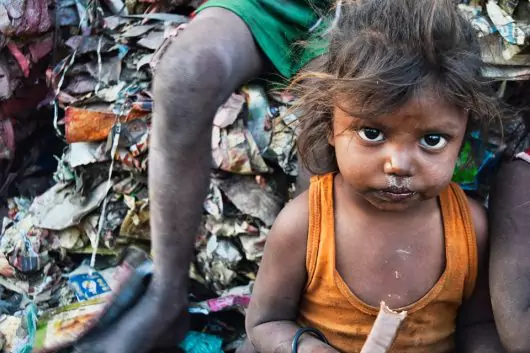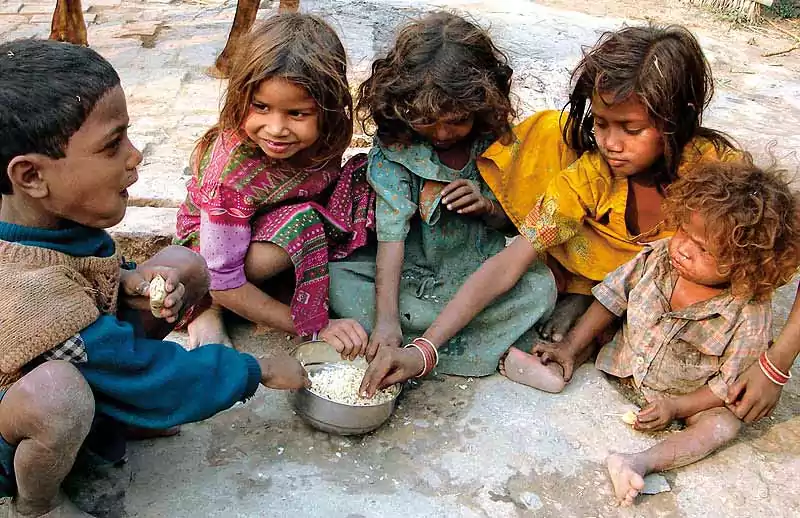Poverty in India
India's poverty rate was below 5% in 2023-24 , according to an SBI study . Government data from the 2023-24 Household Consumer Expenditure Survey (HCES):
- Rural poverty declined from 7.2% (2022-23) to 4.9% .
- Urban poverty declined from 4.6% (2022-23) to 4.1% .
Poverty at the national level dropped 17.2 percentage points from 2011-12 to 2023-24 (from 21.5% in 2011-12 to below 5% in 2023-24 ).
Evolution of Poverty Estimation in India
- Early estimates based on calorie intake norms (Dandekar & Rath, 1960s). Planning Commission adopted this method with modifications.
- Mismatch between National Sample Survey (NSS) consumption expenditure and national accounts statistics led to methodology reviews.
Key committees
- Suresh Tendulkar Committee (2009):
- Shifted focus from calorie intake to overall expenditure basket .
- Used Mixed Reference Period (MRP) to measure poverty.
- C. Rangarajan Committee (2014) (not officially accepted):
- Defined food basket based on calorie, protein, and fat norms.
- Included median non-food expenses (clothing, rent, transport, education).

Methodological Issues in Recent Poverty Estimates
- 2017-18 HCES survey was withheld for "data quality issues," leading to reliance on alternative datasets (PLFS, CMIE, National Accounts Data) .
-
2022-23 & 2023-24 HCES Surveys: Key Changes
-
Modified Mixed Reference Period (MMRP):
- Food expenses recorded for 1 week .
- Regular expenses recorded for 1 month .
- Long-term expenses recorded for 1 year .
- Multiple household visits (3 times instead of 1) improved accuracy but reduced comparability with older surveys.
- Inclusion of free government-provided items (laptops, mobile phones, bicycles, school uniforms, food).
-
Modified Mixed Reference Period (MMRP):
-
SBI's methodology (2023-24)
- Used inflation-adjusted poverty lines based on 2011-12 MRP poverty estimates (₹816 rural, ₹1,000 urban).
- Ignored higher household expenditure estimates from MMRP , which may underestimate poverty .
Urban-Rural Poverty Gap & Census Issues
-
Rural-urban poverty gap narrowed due to:
- Same urban classification since 2011 , without updating for newly urbanized areas.
- Exclusion of potential "census towns" from urban category , possibly underestimating rural poverty.
The "Great Indian Poverty Debate" Continues
- New methodologies improve poverty measurement accuracy but make comparisons with older estimates difficult .
- Poverty estimates remain contentious due to changes in survey methodology, raising questions on actual decline rates .
- Debate continues on whether poverty has truly reduced or is just being measured differently .












